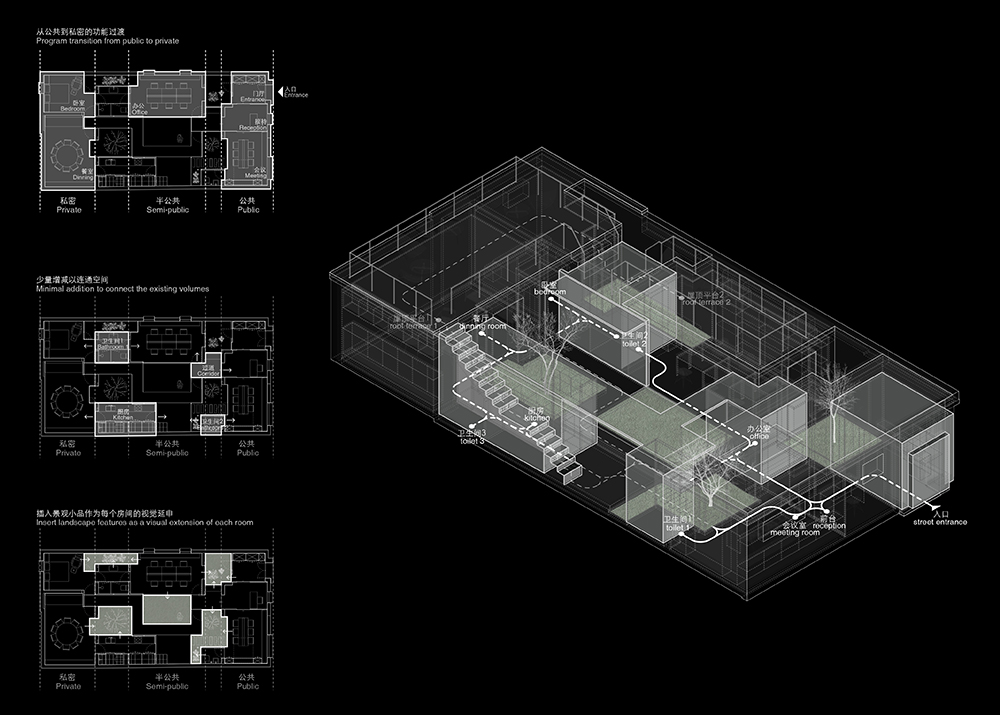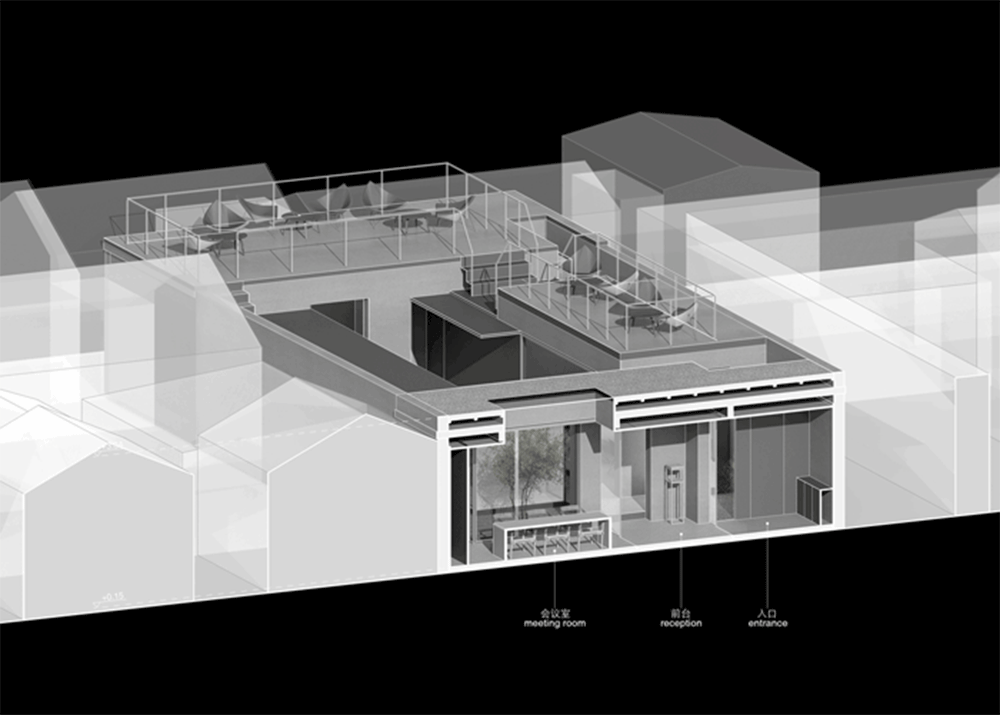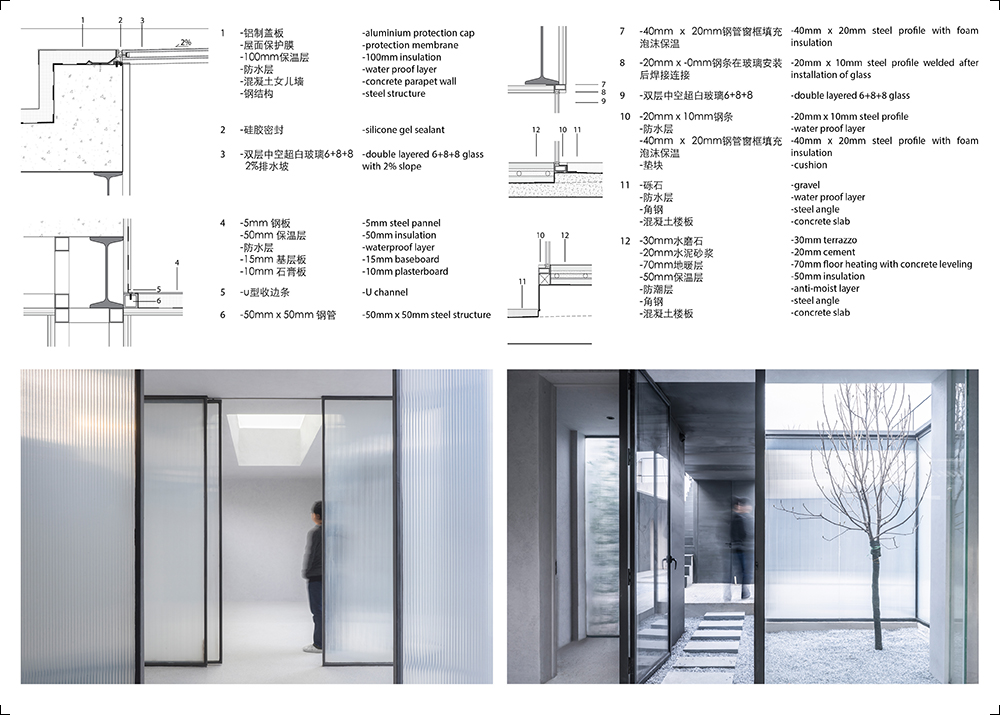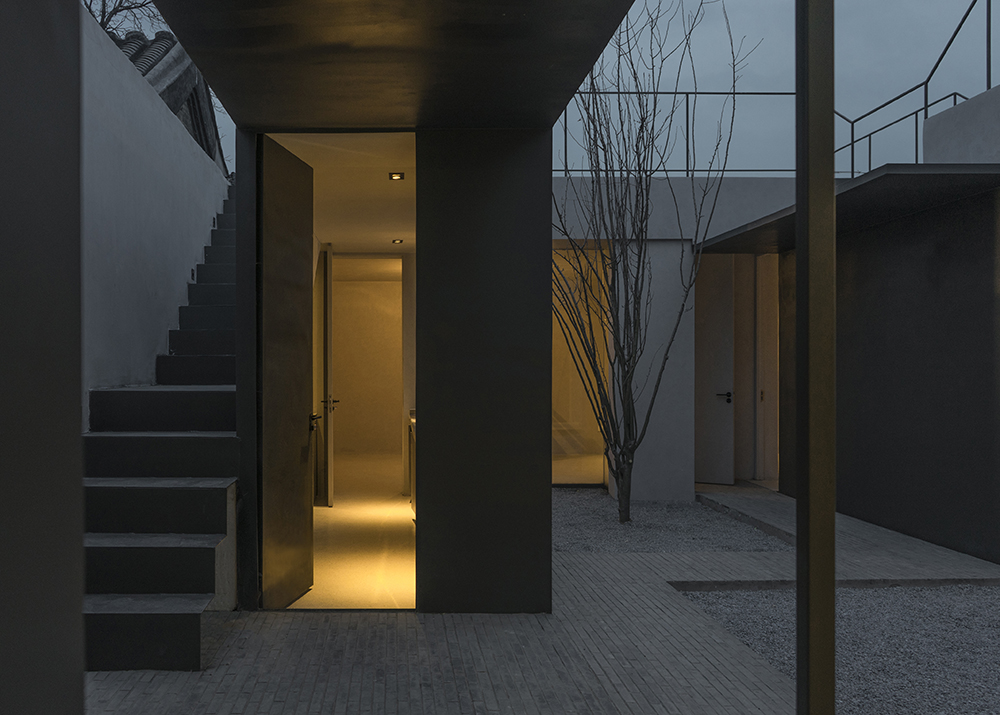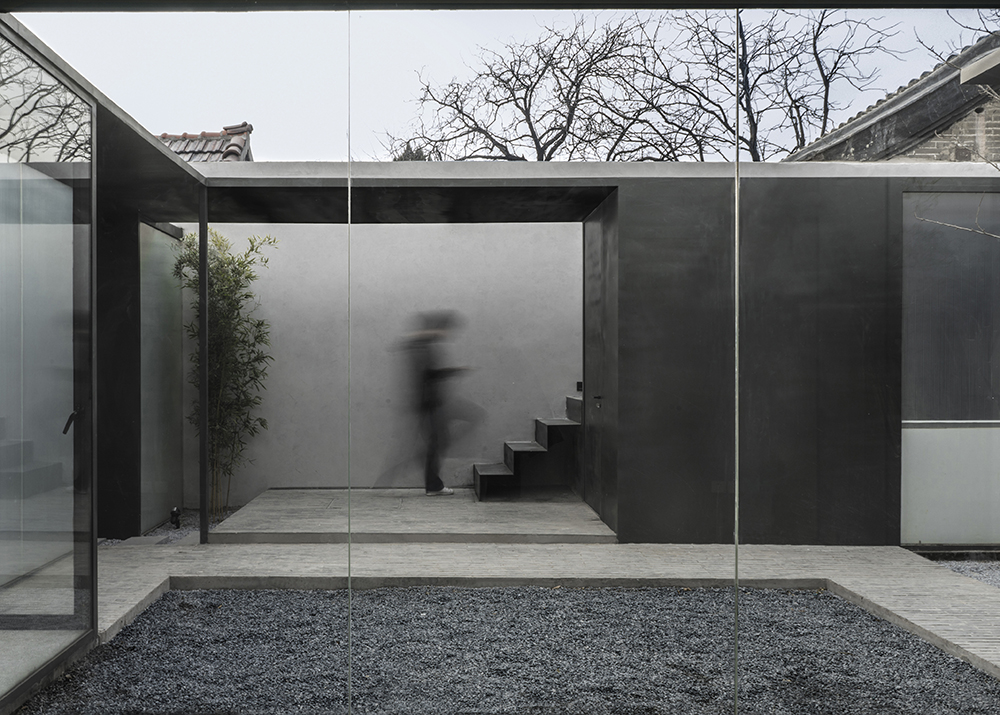re-fracted
Year: 2018 - 2019
Size: 190 m2
Type: office
Status: completed
Location: Beijing, China
Client: private client
Partners in charge: Chen Chen
Design team:
Yangyang Liu, Muzhi Chen, Si Chen, Yuxuan Chen
Contractor:
Beijing Shunyixing
Estate Agents Ltd.

The
project site is nested in a well preserved hutong area in Beijing Xicheng
District. Both the main office and a small residential part had to be
integrated within a limited footprint of 200 m2 with minimum
interventions on the original layout and the client requested a flexible
spatial organization that could accommodate different uses in the future.
Black
steel boxes were inserted to connect the existing volumes, transforming the
site from a traditional living space into a multifunctional modern office. The
new volumes break down the existing barren exterior space into four gardens of
intimate scales and diverse atmospheres. A route is delineated along the 19m
long North-South axis with an orchestrated sequence of different spatial
experiences and changing views to transit from the public office to the private
living part of the building.
The
choice of materials not only establishes a dialogue between the old and the
new, but also implies different levels of privacy. The use of transparent and
ridged glass as spatial partitions helps enhance the sensorial depth of the
space. Depending on the viewers’ perspective, the angle of the sun and the
weather conditions, the glass oscillates between the effects of reflection and
refraction. Standing in the East room, the large transparent glass provides the
perfect view point for the multi-layered panorama of the courtyard to unfold:
the Zen garden in the foreground, the framed view with bamboo leaves and a few
steps leading upwards in the middle ground, and the large trees and traditional
pitched roofs outside the courtyard in the background. While looking from the
exterior, the glass shows a mirrored reflection of the site that creates the
illusion of an expanded courtyard, with modern interior layers and glimpses of
reflected surrounding vernacular context. In the same time the semi-transparent
ridged glass transforms the ordinary objects and everyday activities behind it
into abstract images and patterns. These elusive images altered by different
illuminations create moments of surprises.
该项目位于北京市西城区一片肌理完整的胡同中。在不足200平米的有限场地内,不仅需要最大程度地保留庭院和建筑的原有格局,还需要容纳办公和生活起居功能的叠合,空间布局更需要能被灵活使用的可能性。方案在院内植入几个黑色钢板包裹的新建体量,以最小干预,在容纳几处新的功能空间的同时连贯了室内外动线,实现传统居住建筑向新办公休闲功能的转换。
新体量的植入将场地内原有单一而空洞的室外空间分解与重组,形成了四处尺度与氛围各异的亲切庭院,为各个室内空间提供精致的对景。整个院落进深19米,丰富的空间序列从南向北完成了公共性向私密性的过渡,这条精心设计的动线试图在狭小的空间里最大化空间的纵深,让每个转身都有不同的惊喜。材质的选择反应出新旧体量的分别,也暗示出不同的开放与私密性。不同通透性与光滑度的玻璃作为空间的分隔,在有限的空间中创造出一系列微妙的层次,跟随着天气、阳光和视角的变化,交叉叠替地展示穿透与镜像的效果。站在东房室内,大面积通透的玻璃像是一块无遮拦的取景器:近景是枯石庭院,中景是厨房外灰空间所形成的“画中框”:几丛竹叶,几级台阶和留白的墙面前运动的人影,远景则刚好借用了院外的大树和山墙来丰富景观的层次。而在户外看,玻璃则将庭院镜像反射,院子的尺度感被双倍放大,真实的现代室内与倒映的山墙古树形成虚实重叠交错的场景。略带浑浊的长虹玻璃是介于虚实之间的半透材料,它的波楞构造将其背后平凡的物件和场景幻化成难以捉摸的影像,在不同光照的影响下营造出惊喜的瞬间。

